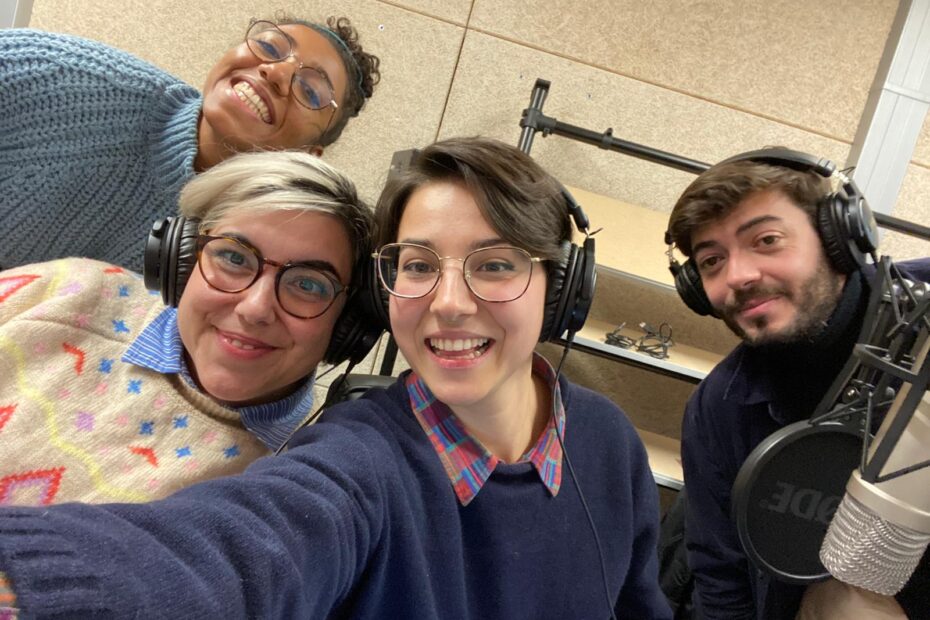[Warning: This article is exclusively in English to align with the language of the podcast.
[Attenzione: Questo articolo è solo in inglese poiché il podcast è in inglese.]
[Atenție: Acest articol este doar în limba engleză, deoarece podcastul este în limba engleză.]
[Προσοχή: Αυτό το άρθρο είναι μόνο στα αγγλικά επειδή το podcast είναι στα αγγλικά.]
[Uwaga: Ten artykuł jest dostępny wyłącznie w języku angielskim, ponieważ podcast jest prowadzony w języku angielskim]
In the city of Lyon, during the final meeting and multiplier event organized by Arty Farty, a super nice podcast session took place at Hotel71. Gathered were representatives from Materahub, Arty Farty and Bitzrupt, converging to talk about the essence of their collaborative work – the two-year Erasmus+ project ReCCI.
At the heart of this project lies a profound recognition: the role of creative and cultural industries (CCIs) in fostering sustainability, especially during times of crisis such as the COVID-19 pandemic. As the world faced new challenges, creators took on the crucial role of meeting society’s changing cultural needs while securing their own sustainability.
The podcast served as a moment to explore how the ReCCI project aimed to address these challenges head-on. Central to the project’s ethos is the concept of adaptability as a catalyst for resilience. Recognizing the rapidly changing landscape of CCIs, Recci sought to equip industry professionals with a range of essential hard and soft skills. From business acumen to digital literacy, the project aimed to empower individuals to navigate the complexities of the modern cultural sector.
Through its multifaceted approach, the patnership envisioned a future where CCIs thrive in the face of adversity. The project’s outcomes, including a Competency Framework, Training Course, LearningHub and Handbook, underscored its commitment to create innovation and collaboration within the sector; embodied the spirit of adaptation in an ever-changing world, ensuring that CCIs not only survive but thrive in the face of adversity.
As the podcast conversation unfolded, it became evident that the ReCCI project was more than just a project; it aimed to set a precedent for effective crisis response and adaptation in the cultural sphere. By fostering a culture of continuous learning and exchange, the project sought to contribute to the broader discourse on the role of CCIs in the European economy and society.

 Polski
Polski Română
Română Italiano
Italiano Ελληνικά
Ελληνικά Français
Français